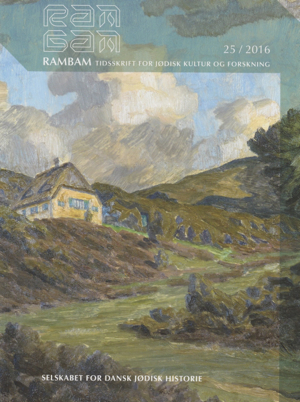Ghettoen som Heimat
Abstract
The Ghetto as Heimat
This article analyses the attitudes of the founding fathers of Zionism towards “the ghetto”. Based on Max Nordau’s address to the first Zionist Congress in Basel in 1897, his play Doktor Kohn (1898), and Herzl’s play Das Neue Ghetto (1898), it is argued that early Western Zionism had a highly ambivalent attitude towards “the ghetto”. In particular Nordau, but also Herzl, distinguished between two ghettos: a historical-material ghetto and a new immaterial ghetto. The historical-material ghetto had the function of a ‘homeland’ to the Jews, while the new immaterial ghetto was a question of social ethics (‘Sittlichkeit’) which could not be solved before the Jews (re)constructed their homeland. Accordingly, the historical-material ghetto was, to an extent, a source of national togetherness and civil society for the Jews, while the new ghetto was an invisible prison partly caused by Jewish self-seclusion and unmanliness, but also by bourgeois prejudice. In conclusion, it is argued that “the ghetto” played a just as important part as the Hebrew Bible in early Zionist imagery of Jewish civil society.





